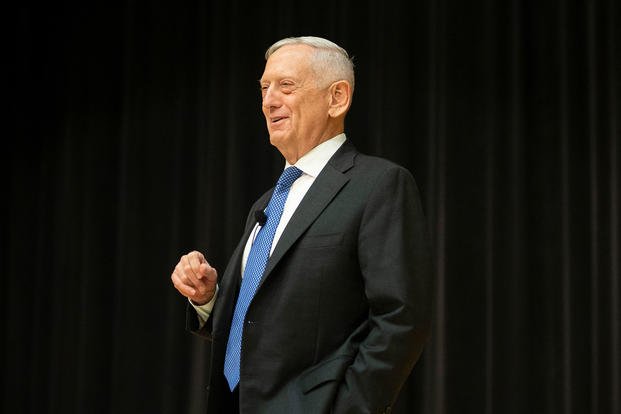
University Relations
Social Media Guidelines
Purpose
The social media guidelines apply to faculty, staff, students and any affiliates/consultants of Central Washington University who participate in social media for and on behalf of Central Washington University. Central Washington University supports the use of social media to share news, events, and important information related to the university.
These guidelines provide faculty, staff and students with the tools to use social platforms on behalf of the university. These guidelines apply to all social media engagement on behalf of CWU for both departmental and individual professional use. These guidelines provide suggestions on protecting personal and professional reputation of students, faculty, staff, and the university while using social media. The guidelines ensure university social media sites are legal and ethical.
Guidelines
-
Social Media Engagement
- Follow Central Washington University Code of Conduct and Privacy Policies. All university social media sites must adhere to state and federal laws. All sites must respect copyright law. Adhere to all confidentially policies of protected information. Do not disclose, post, or share any information that is confidential to Central Washington University.
- Post only content that is not threatening, obscene, a violation of copyright or other intellectual property rights or privacy laws, or otherwise illegal. Contact CWU’s Contracting Services or the Office of General Counsel if unsure whether certain content is protected by these laws.
- Official university social media sites will have two administrators. All university affiliated sites will have two administrators, if one is unavailable, the second assigned administrator will be responsible for management of the site. One administrator should be a university employee. Should one administrator of an account leave or resign from the duty, it is the administrative department’s responsibility to designate a new administrator and notify the Public Affairs department. Administrators are responsible for monitoring content and removing any content that may violate this policy.
- Social media accounts affiliated with the university need to be approved through Public Affairs.
- Do not use Central Washington University’s identity, except as permitted for departmental use. Do not create social media profiles or accounts on behalf of Central Washington University without prior approval of the Public Affairs department.
- Do not engage in communication that could raise conflicts of interest on behalf of the university.
- Do not use Central Washington University social media platforms for personal gain.
- Adhere to CWU brand guidelines when posting on behalf of the university.
- Engage in political activities only on your individual profiles and avoid any activity that leads to assumption you are speaking or acting for the university on political matters.
- Use good judgement. Any actions and statements on departmental and individual profiles related to the university have the ability to reflect on both individual and university, please use good judgement when speaking on such platforms. Respect privacy laws including Family Educational Rights and Privacy Act (FERPA) and the Health Insurance Portability and Accountability Act of 1996 (HIPAA).
- Do not maintain inactive social media accounts on behalf of the university. If a social media account related to the university has been created and is not being used actively, take the appropriate steps to have the account removed.
- Do no harm – when engaging on individual social media with a CWU affiliation on your profile, please insure no conversation or post, harm the university, its staff, faculty, and students.
- If your personal social media identifies you as a CWU employee or student, it should be clear that the views expressed are not those of the university. While not a requirement, employees may consider adding a disclaimer to personal social media accounts. “While I am a CWU employee/student, comments made on this account are my own and not that of the university.”
- Be aware of NCAA rules governing interactions between the institution, its employees, and prospective student-athletes. Employees should refrain from contacting prospective student-athletes through any social media outlet, prior to signing a National Letter of Intent. Check with the Athletics Department before posting anything that may violate these rules. Violating this policy could result in a fine to the university.
-
Branding
- For any university social media site, the social media profile and/or icon photos must comply with the university brand standards.
-
Administrators
- Administrators must request permission from the Public Affairs social media coordinator to hide or delete any content in violation of this policy.
- Administrators must request permission to block a user from a social media platform by contacting the Public Affairs social media coordinator.
-
Content for CWU Social Media
- Content for the social media sites must be public information only and should not be used for any business transactions or release of confidential records.
- Content for the university social media sites may include photos, audio, and video but cannot infringe on the intellectual property rights of others.
- It is encouraged to link all material to the source of the post whenever possible. This helps provide accurate information to the public.
-
Copyright 101
- Social Media is a form of electronic communication (such as websites for social networking and microblogging) through which users create online communities to share information, idea, personal messages, and other content (such as videos).
- Social Media is the exclusive legal right, given to an originator or an assignee to print, publish, perform, film, or record literary, artistic, or musical material, and to authorize others to do the same.
-
Questions to ask for potentially copyrighted material:
- Who owns the material you want to post? Author? Photographer? Composer of a song? Videographer? Publisher?
- How do I get permission to post copyrighted material?
- Reach out to the owner of the content
- Learn about copyright guidelines
- What material is considered “fair use” under the Copyright Act?
- Use is for nonprofit, educational, or personal
- Only small amount of the material will be used in the post
- Non-commercial use of material
Best Practices
-
Facebook Best Practices
- Quality and consistency over quantity
- Facebook posts should be at least 40-60 min apart
- Do not post on top of other posts. They will not receive adequate engagement because of Facebook’s algorithm.
- Please keep an eye out on scheduled posts to plan accordingly. Is there a post to go out within the next couple of min? Wait to post yours.
- Facebook posts should be at least 40-60 min apart
- Short and to the point
- 80-character Facebook posts receive 86% more engagement over others
- A user most likely won’t click the “see more” button to read the full content
- Push back to the website for full content
- Aim for engaging content always
- How will the audience respond to the story?
- Will the audience comment? Like? Share?
- Avoid headlining your post
- Quotes can be great for this
- Let the headline be the headline and link attachment be the summary
- Avoid using direct calls to action for engagement – Like or Share
- Instead have content that makes the users want to do these things on their own.
- Facebook’s algorithm frowns against this
- Use engaging questions to start conversations.
- Do you have a story or post that probes a question for your audience?
- Include videos and images whenever possible
- More people are viewing and sharing video content on Facebook than ever before
- Facebook posts with an image have an 87% interaction rate over plain text posts.
- Facebook videos earn 135% more reach than posts with only an image
- Engage with the audience
- Social media is supposed to be social. Don’t be afraid to respond and talk to those who are talking to us. Create a conversation.
- TRIPLE check the post for grammar or spelling errors
- You can edit the post is you must, however posts edited tend to receive less engagement.
- DO NOT delete posts
- As a state agency, we are subject to public records requests. Because of this no posts should be deleted on social media unless a major mistake was made.
- If possible, edit the post as soon as the mistake is noticed
- If deletion is necessary, take a screenshot of the post prior to deleting
- DO NOT hide comments on posts unless they contain abusive, defamatory, hateful, racially or ethnically offensive or derogatory content, obscene or sexually explicit language.
- While we may not agree with the comments that are posted or like negative feedback, it is important that we are receptive to comments.
- If we hide posts just because we don’t like the tone they set, this could potentially backfire and seem as if the university is hiding something.
- As a state agency, we are subject to public records requests. Because of this no posts should be deleted on social media unless a major mistake was made.
- Managing Posts
- Three strikes and you’re out rule for inappropriate users
- Reply to the person commenting and ask them to refer to the community guidelines in the about section, giving them a warning.
- Develop community guidelines if they do not already exist
- Hide the posts that contains abusive, defamatory, hateful, racially or ethnically offensive or derogatory content, obscene or sexually explicit language.
- Reply to the person commenting and ask them to refer to the community guidelines in the about section, giving them a warning.
- Hide the posts that contain spam or solicitation
- Do not message anyone directly about inappropriate posts. Always reply to their comment publicly. This protects us legally.
- Do not argue with users.
- NOTE: There are some opinions and viewpoints that are the right of the Facebook user. We may not like it, but we cannot change it.
- Three strikes and you’re out rule for inappropriate users
- Quality and consistency over quantity
-
Instagram Best Practices
- Post regularly but focus on quality over quantity
- Posting once a day versus multiple times a day doesn’t matter as long as the post is at the most optimal time
- Be active when your audience is active, study the times they are on Instagram most
- Instagram posts have a short lifespan with the new algorithm, there is a small window – that is the only time your post will be seen
- Encourage audience engagement by asking them to tag you in their experiences with Central
- Use this as an opportunity to feature them on CWU feed
- Use hashtags relevant to Central Washington University
- Use visually appealing photos
- Don’t over edit the images
- Use geo-tagging
- Use video as often as possible, it has higher engagement rates over photos
- Take Instagram stories, this also helps increase engagement
- Use stories to drive audience to your post
- Jump on trends
- Use influence marketing (brand ambassadors)
- Have enough content to post at least twice per week
- Post regularly but focus on quality over quantity
-
Twitter Best Practices
- Be active. Post regularly and retweet relevant content
- Share other department posts to create a full range of engagement across campus and community
- Shorten links using bit.ly
- Use hash tags, but no more than three per post
Engage with followers in conversation (@replies)
- Use relevant emoji’s
- News and event updates
- Live tweets at important events
-
Creating Profile Images
- Use of logo associated with Central Washington University must be those in the approved Brand Guidelines
- Refrain from using only the CWU logo. Gain approval from Public Affairs to add department name, club name, group name, etc. to the profile image with approved CWU logo
- Please see Brand Guidelines for reference on using approved CWU logo
- Refrain from stretching or distorting CWU logo
- Use proper resolution of logo
- The CWU logo is trademarked, use of this logo must be approved by the Public Affairs department
Sizing
- Facebook: 360 x 360 pixels
- Twitter: 400 x 400 pixels
- Instagram: 180 x 180 pixels
- YouTube: 800 x 800 pixels
-
Comment Guidelines
Central Washington University encourages commenting and responding on our social media channels. Thoughtful discussion and debate are accepted as long as they follow the comment guidelines. Central Washington University is not responsible for published comments and discussion does not reflect CWU viewpoints or opinions. CWU is not responsible for the individual commenting on CWU owned social media channels.
CWU reserves the right to hide or remove comments or posts, without notice to the publisher, that do not comply with the CWU guidelines as well as with the guidelines of the social media channel.
Debate, discussion, and interaction must be respectful and relative to the published content. Opinions, debates, and/or disagreements must be constructive and refrain from obscenities, profanities, threatening, harassing, discriminatory, hate speech, abusive content, personal attacks, and defamatory comments. Other comments and/or published content that CWU reserves the right to remove are indecent, sexually explicit, or include personal, confidential information. No spam or promotion of products will be accepted.
CWU News

CWU alum James Mattis receives inaugural public service award
April 15, 2024
by Rune Torgersen

CWU College of Business to host Economic Outlook Conference on May 6
April 15, 2024
by David Leder